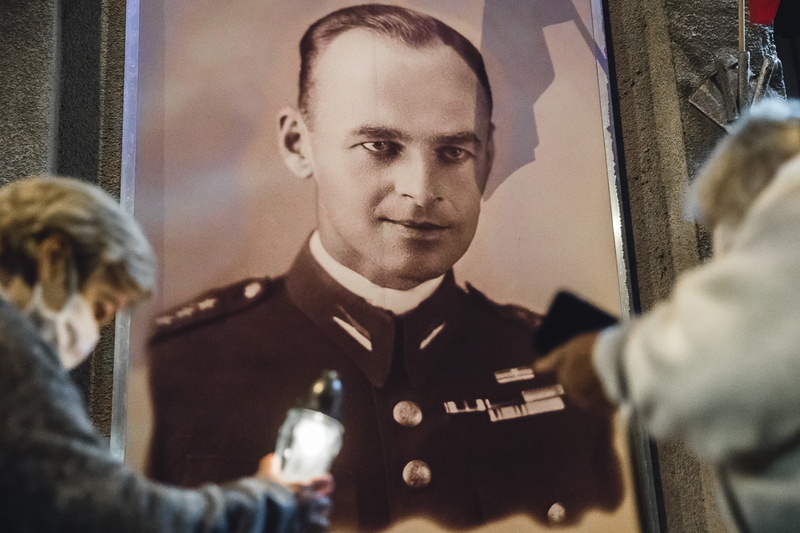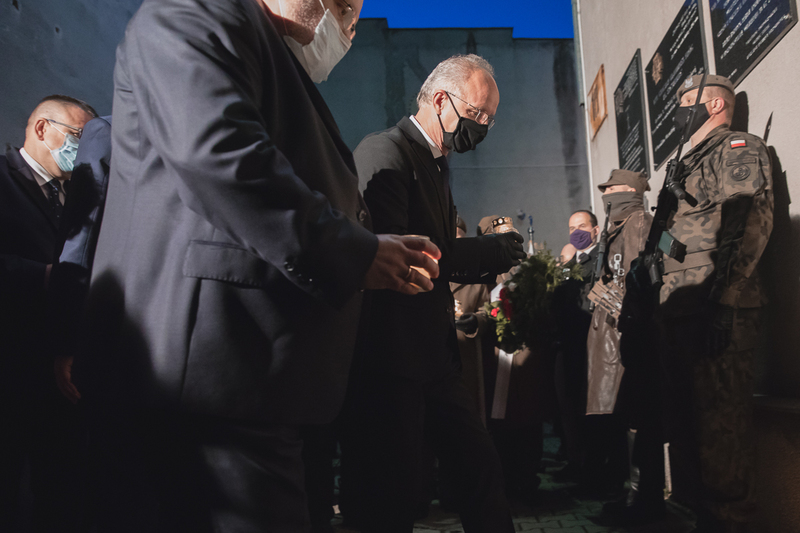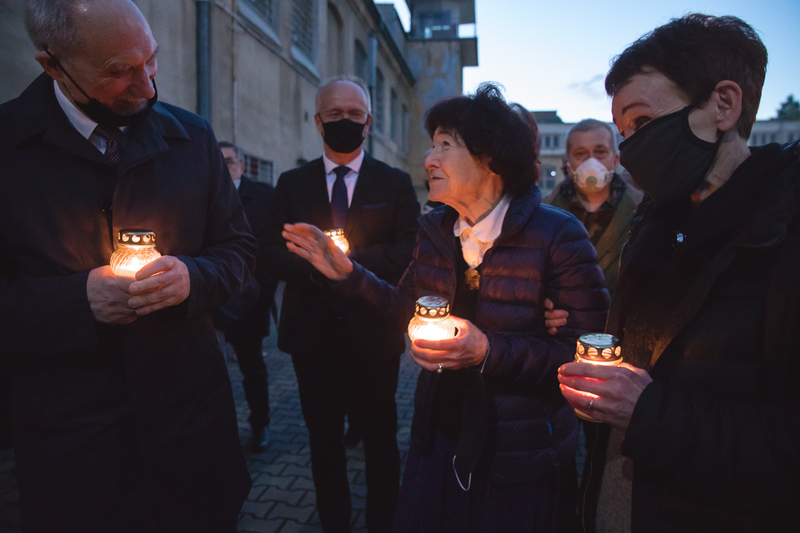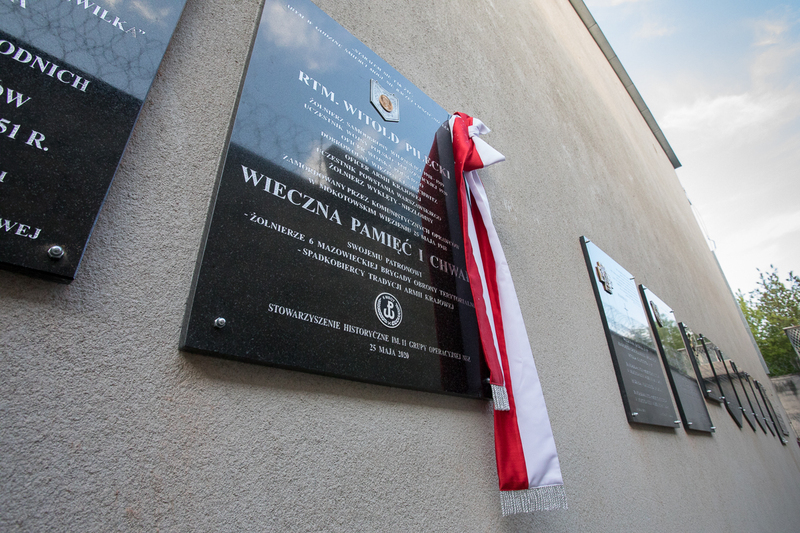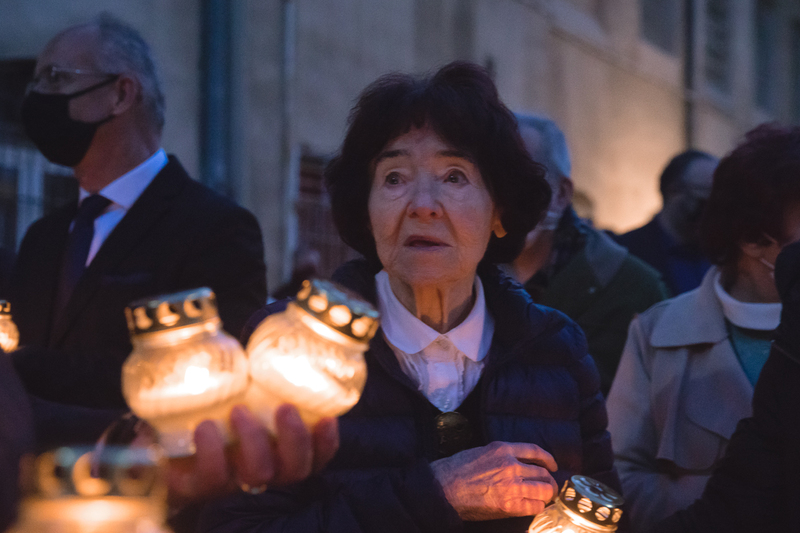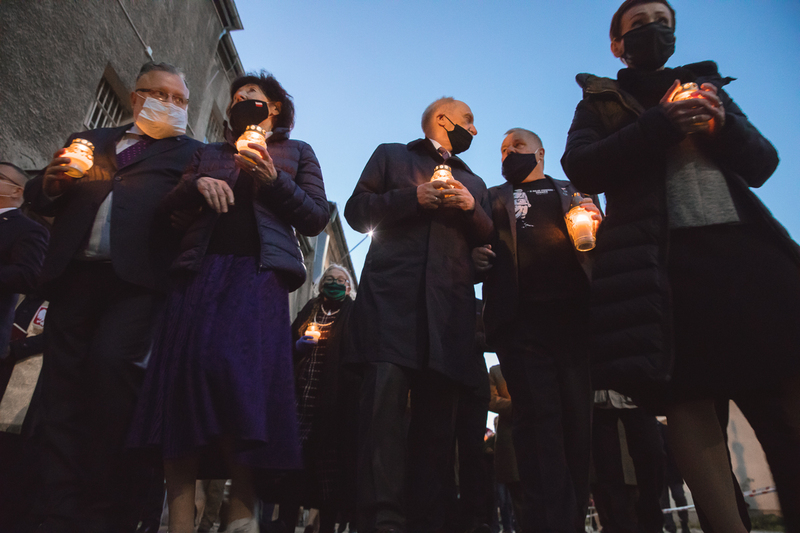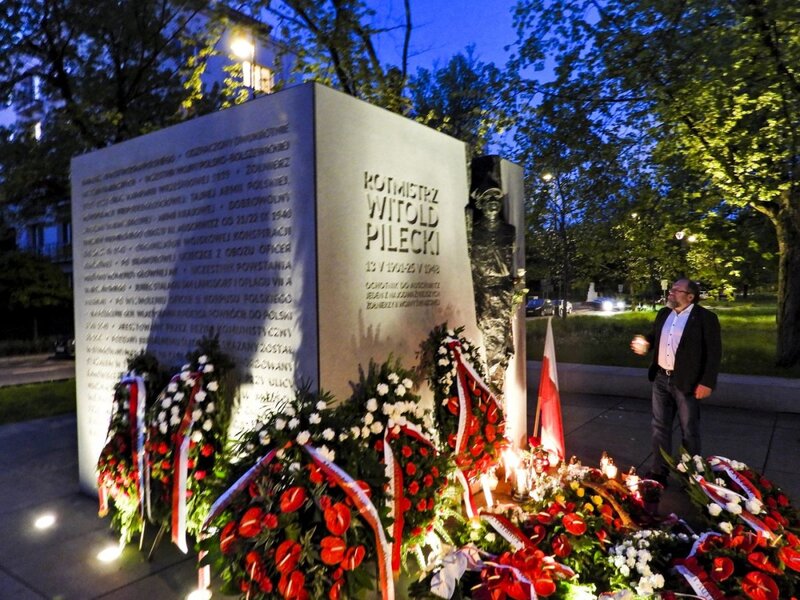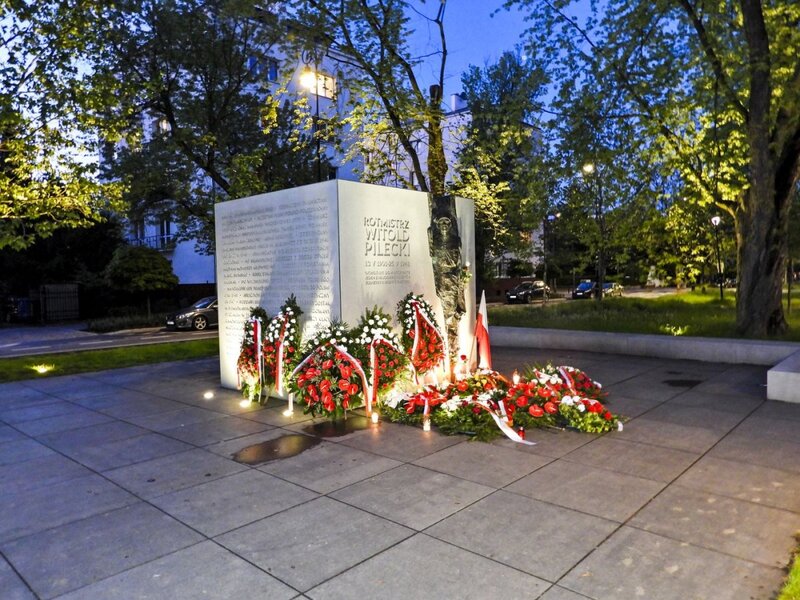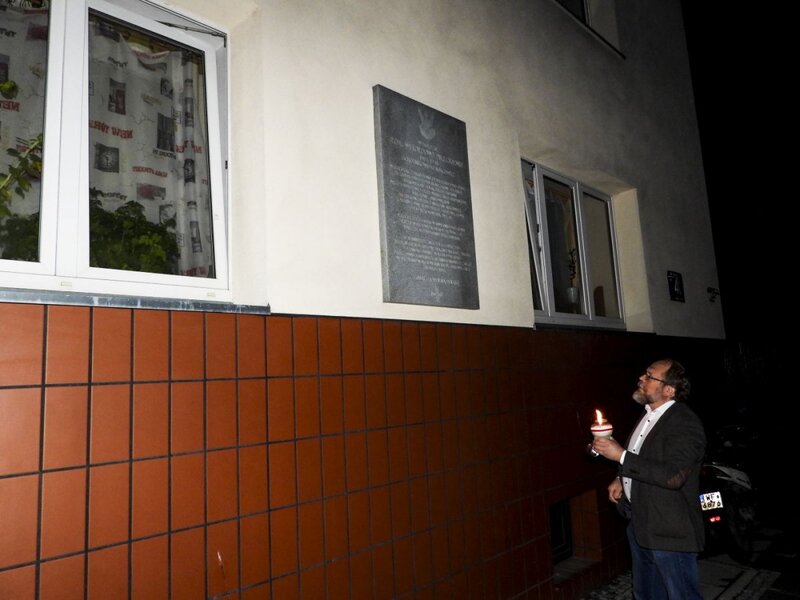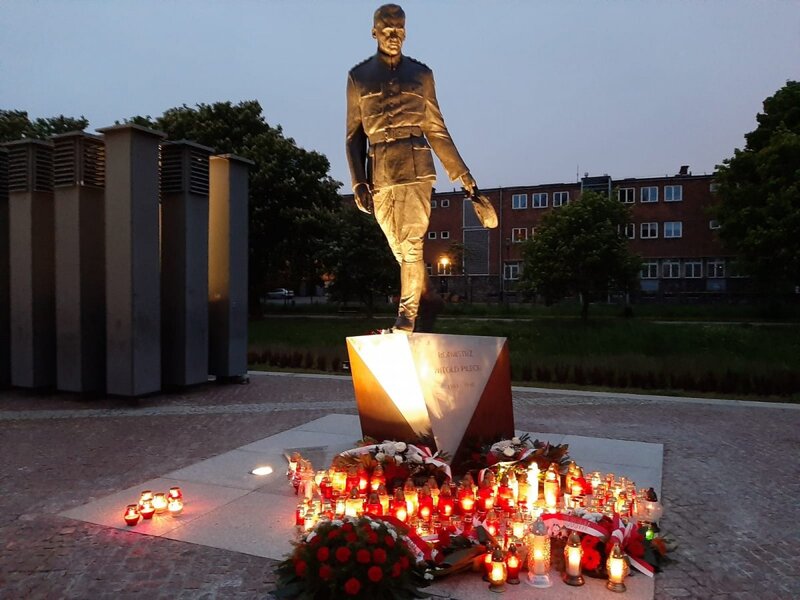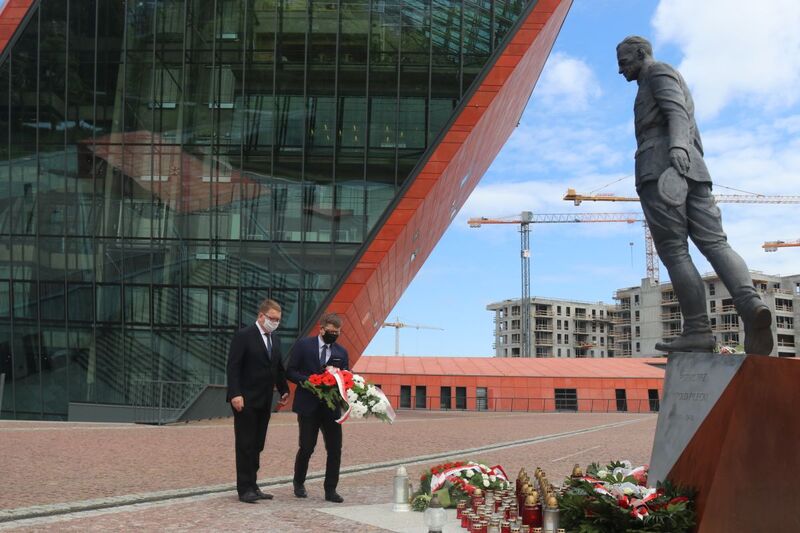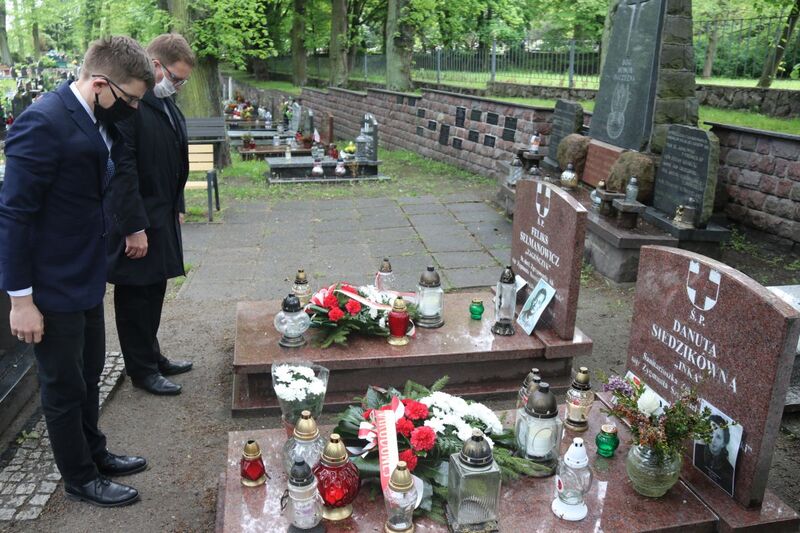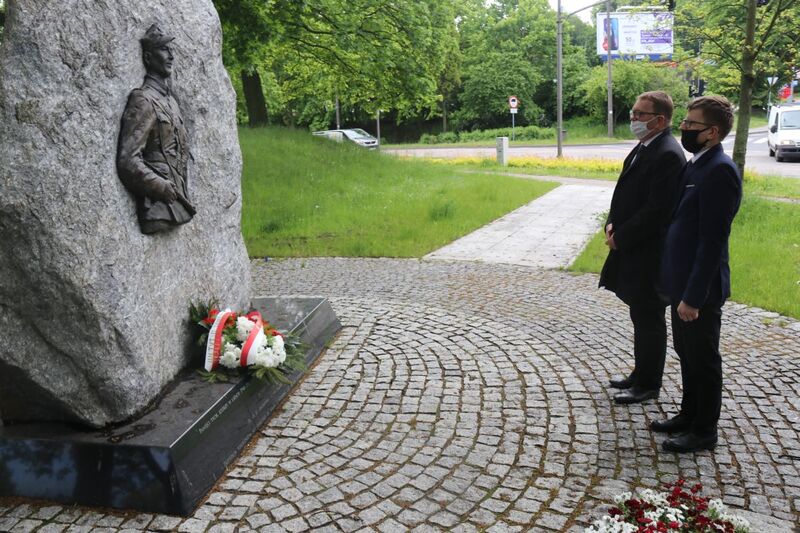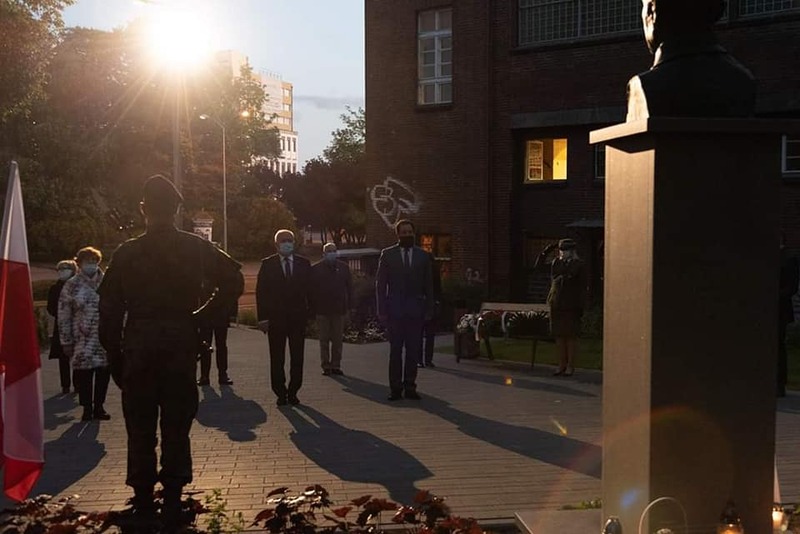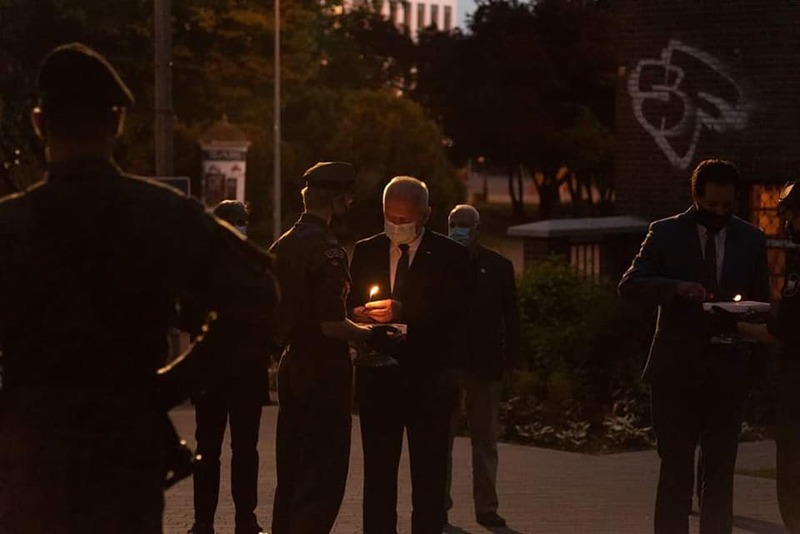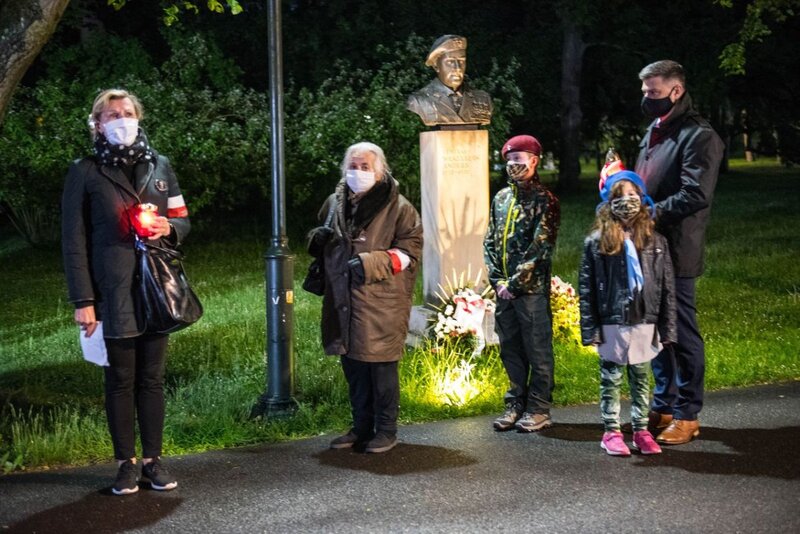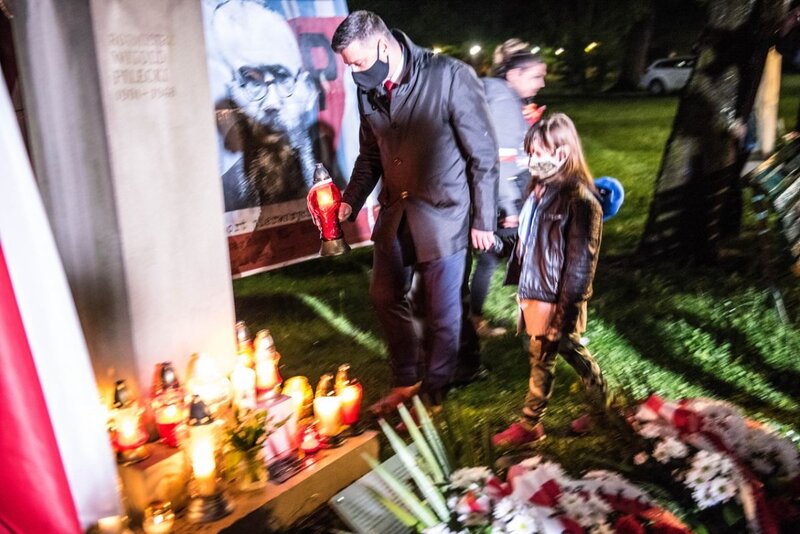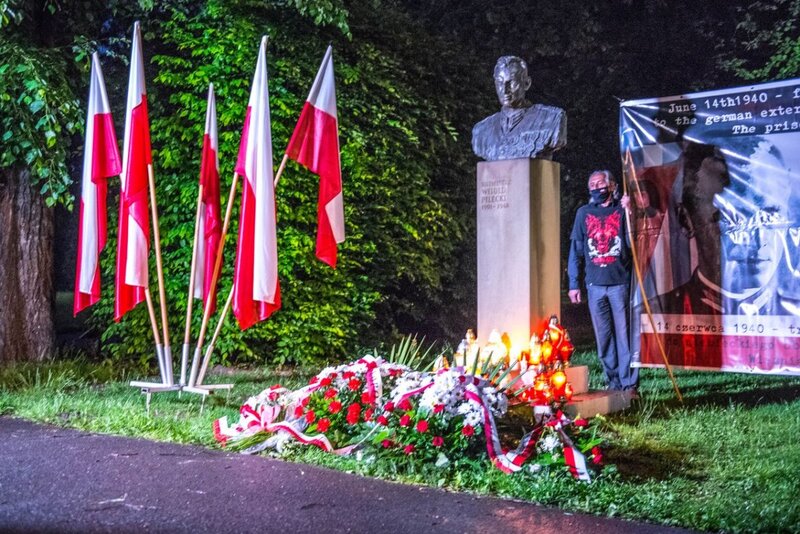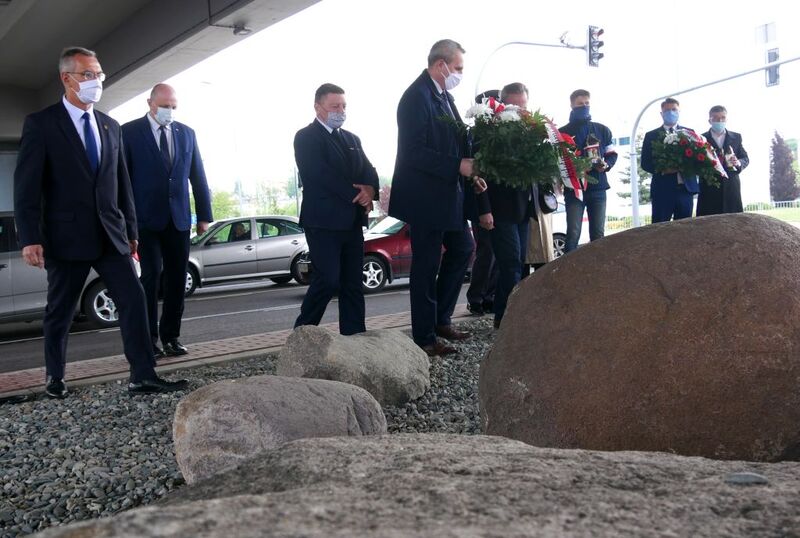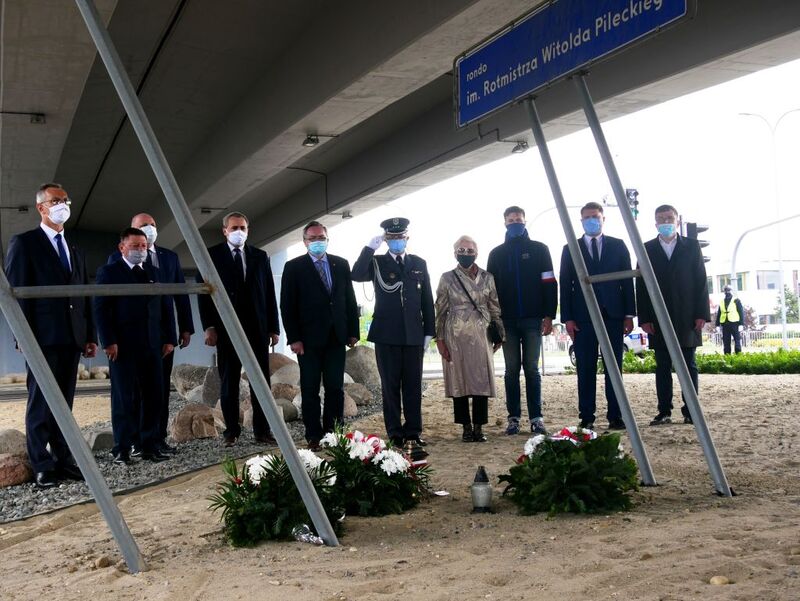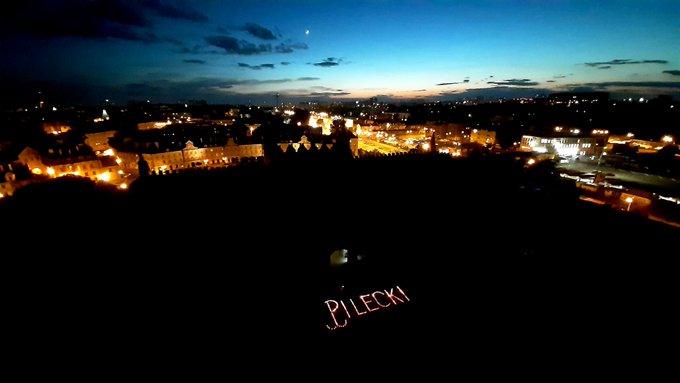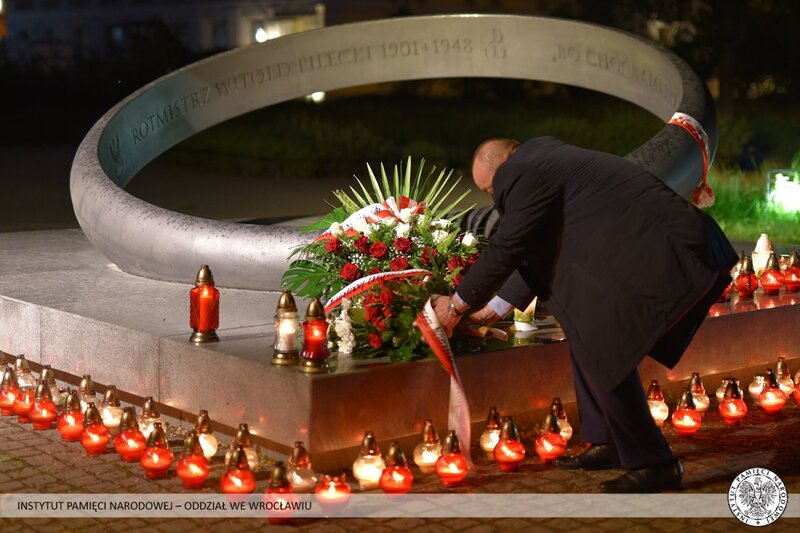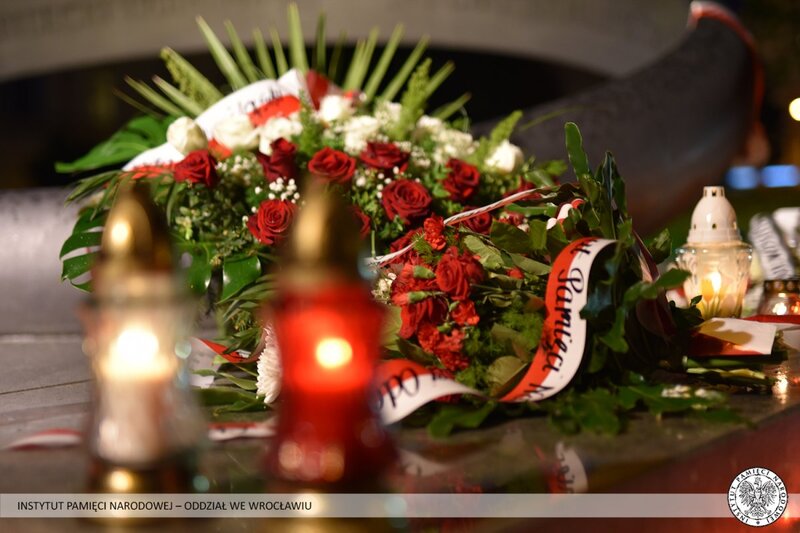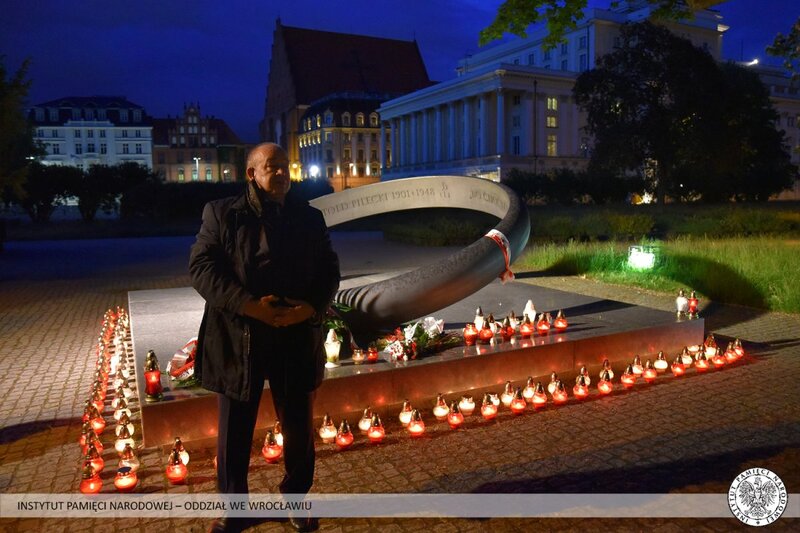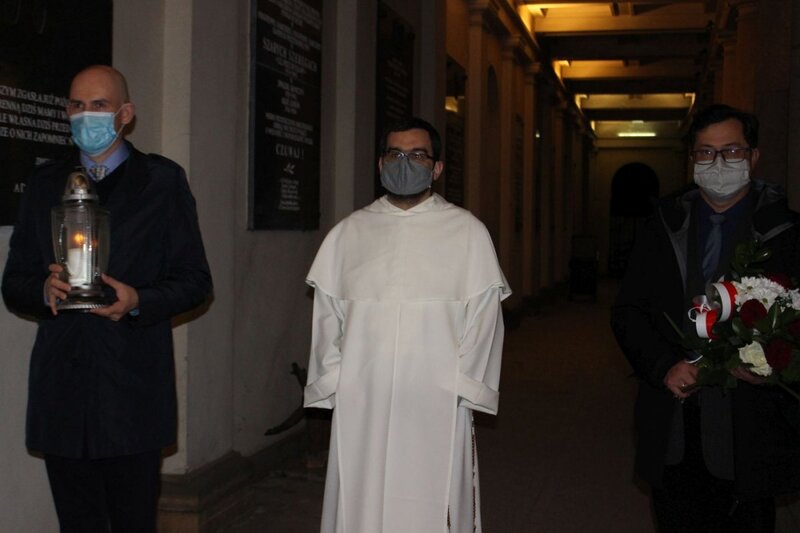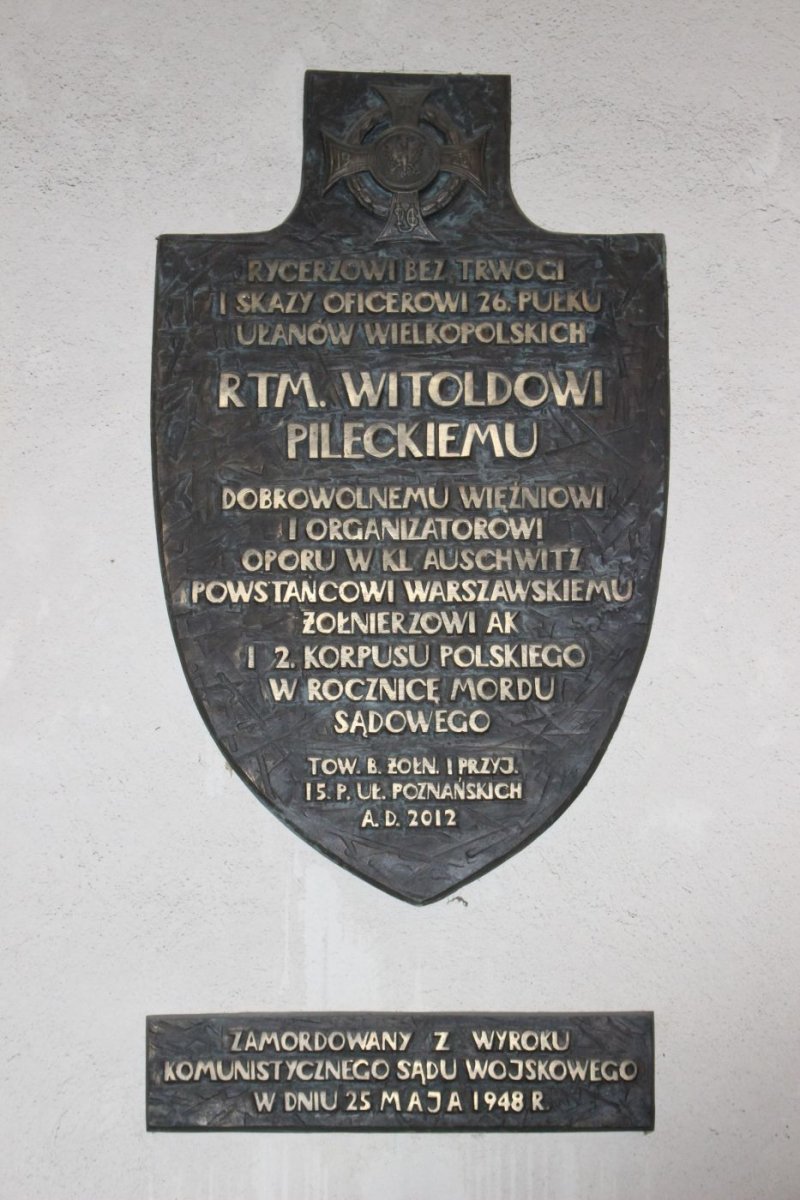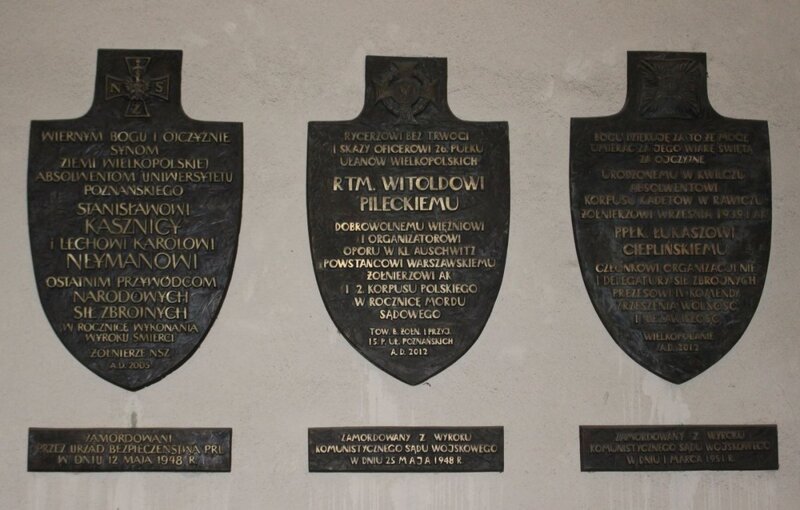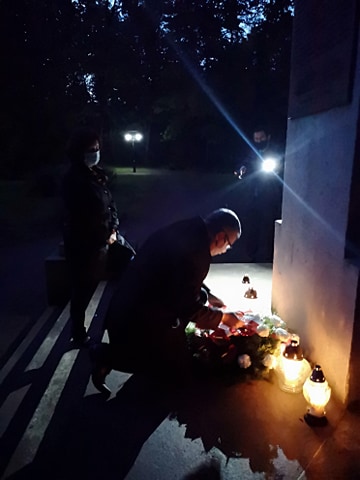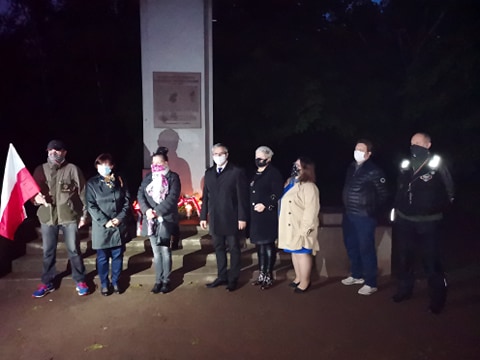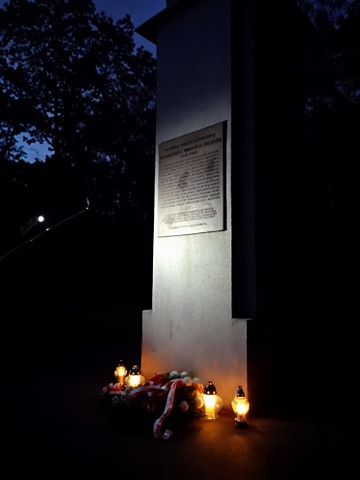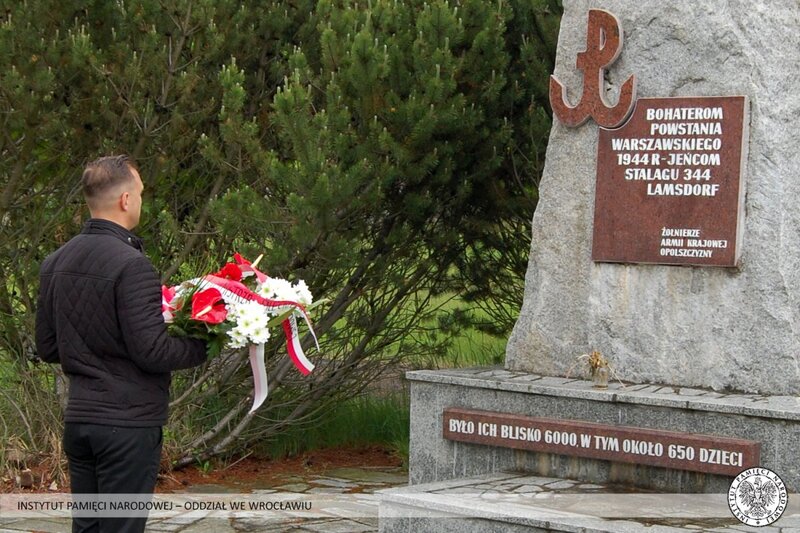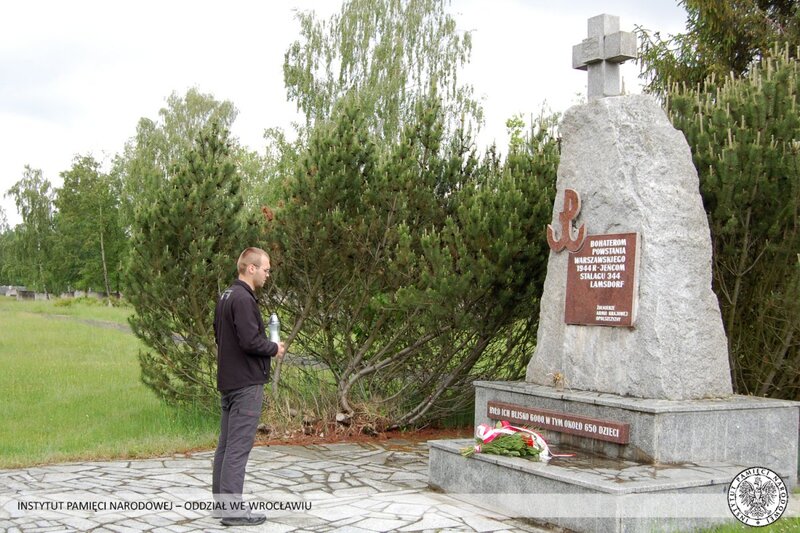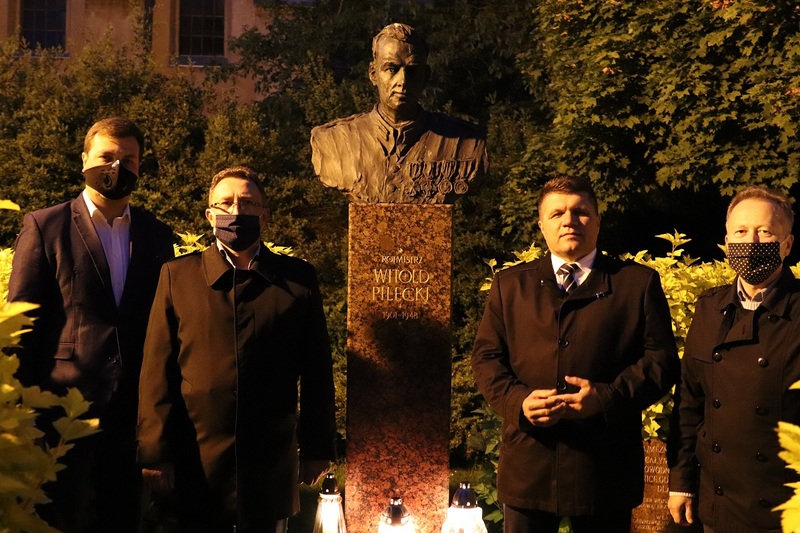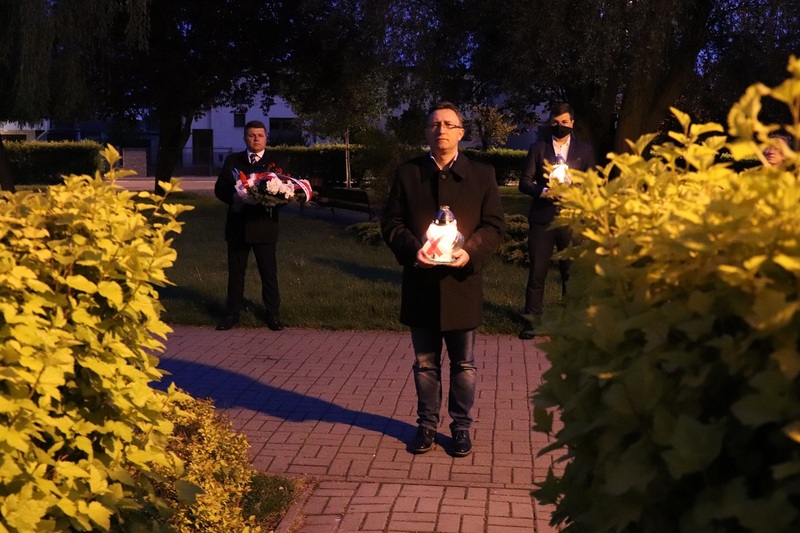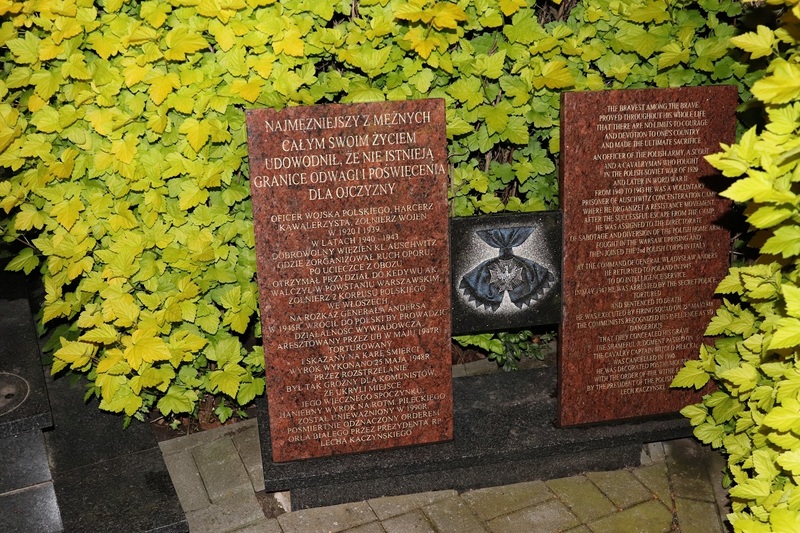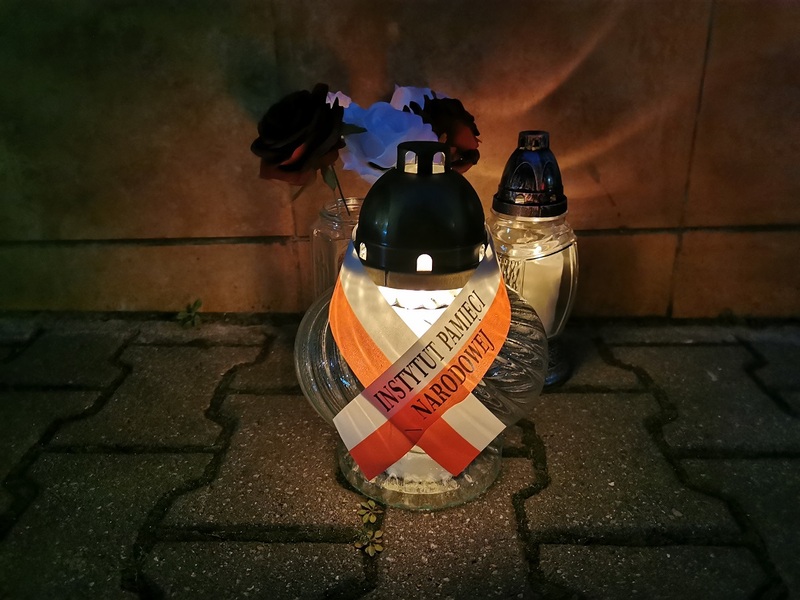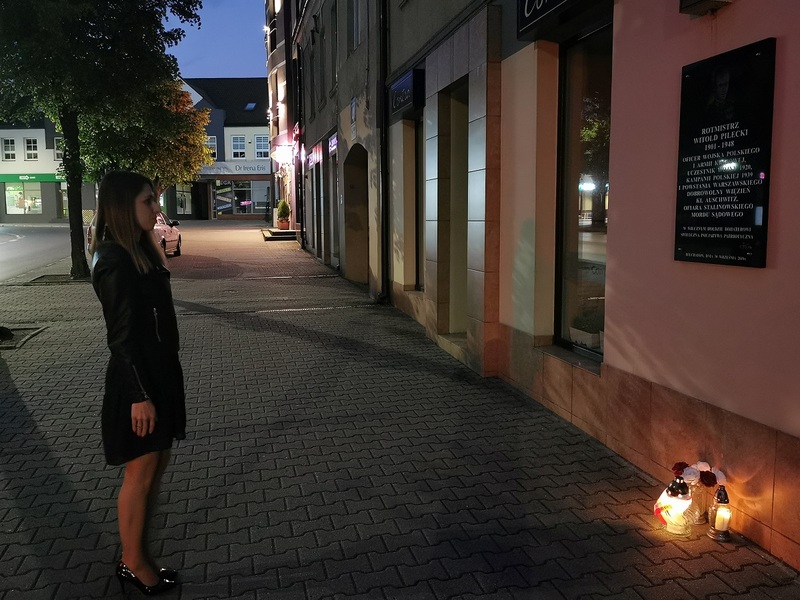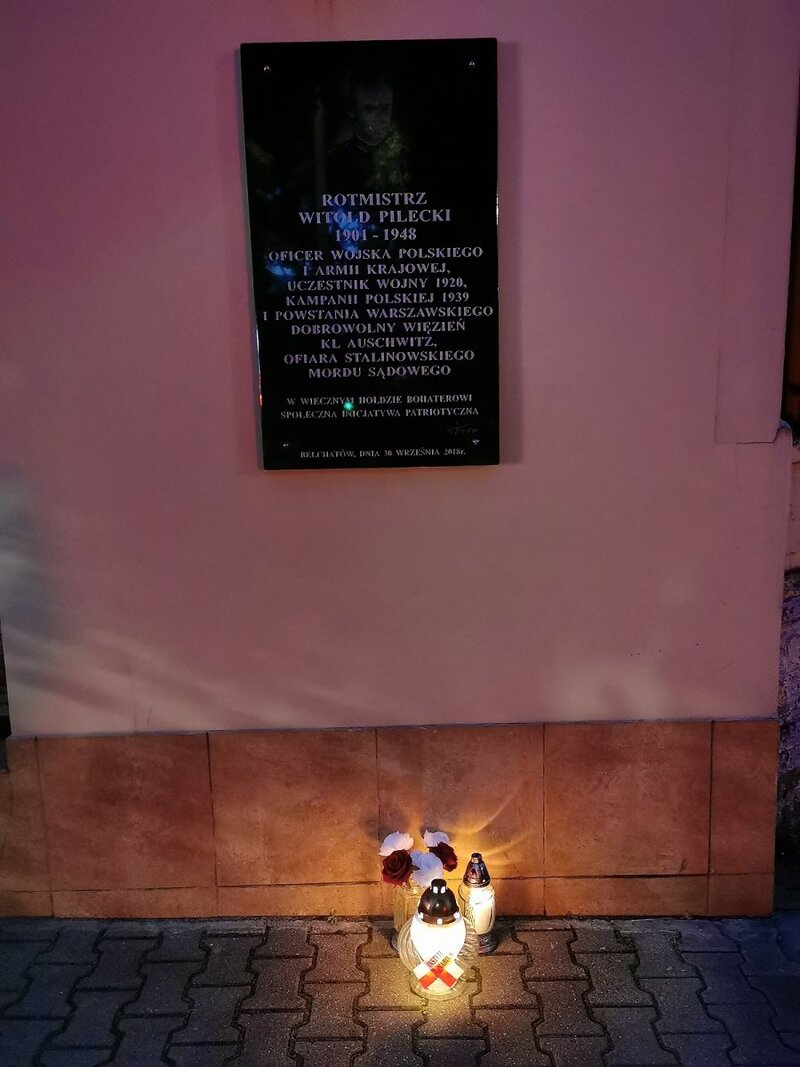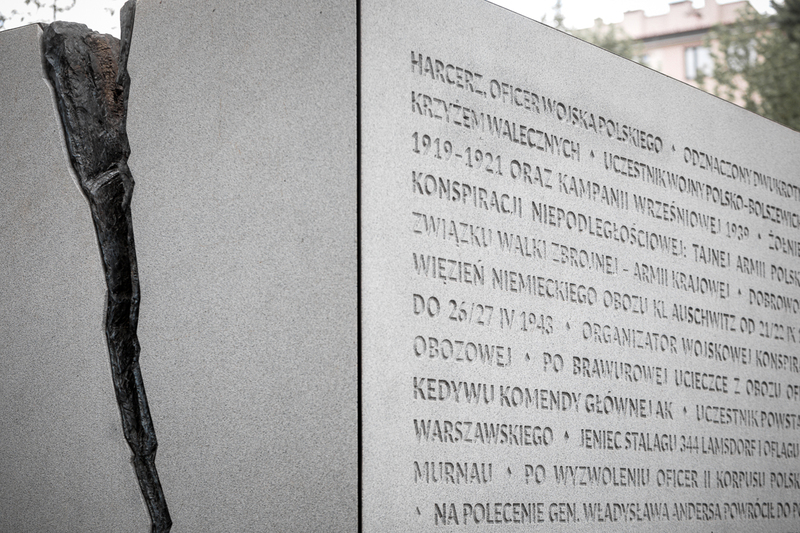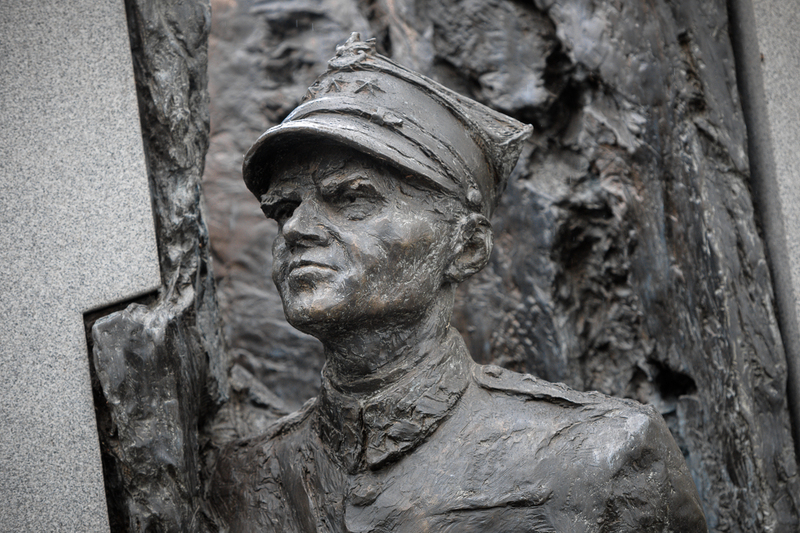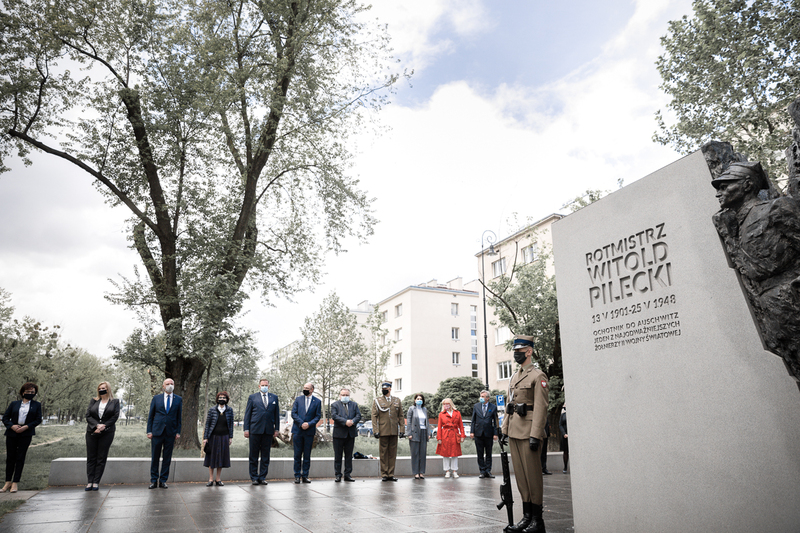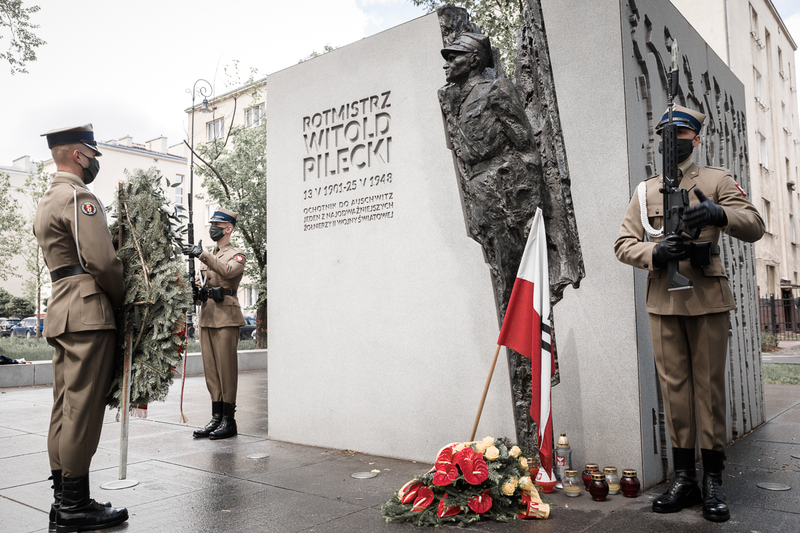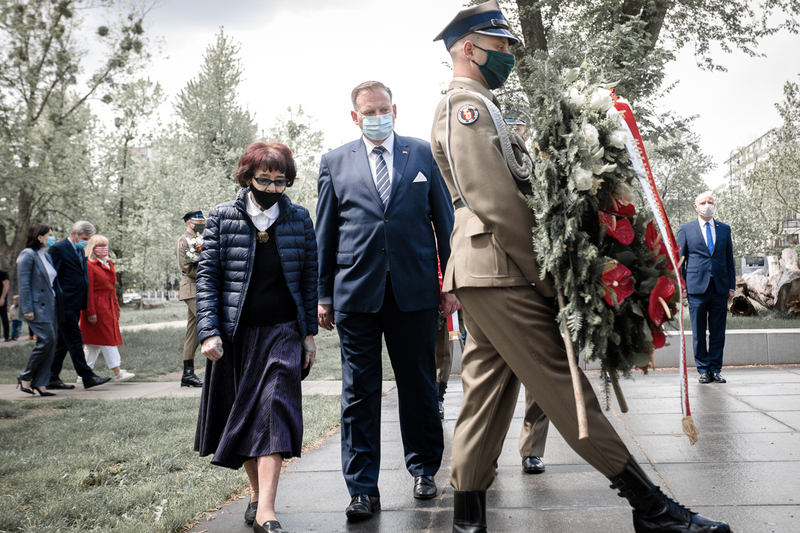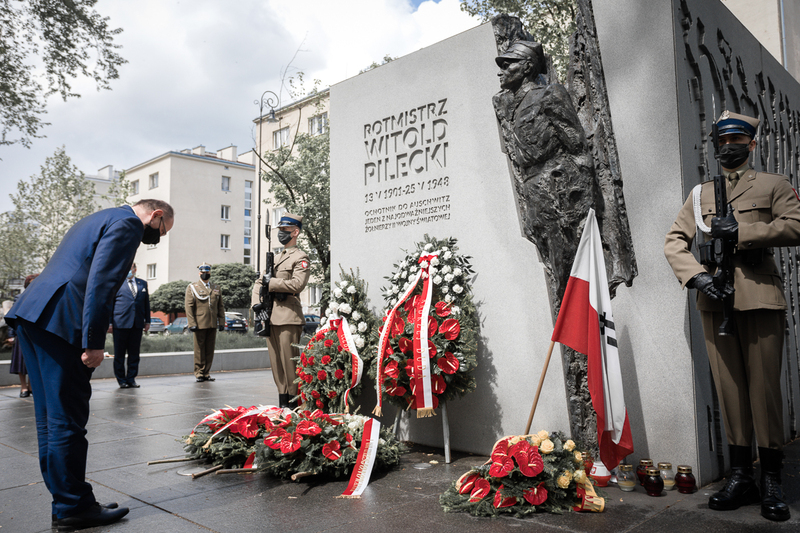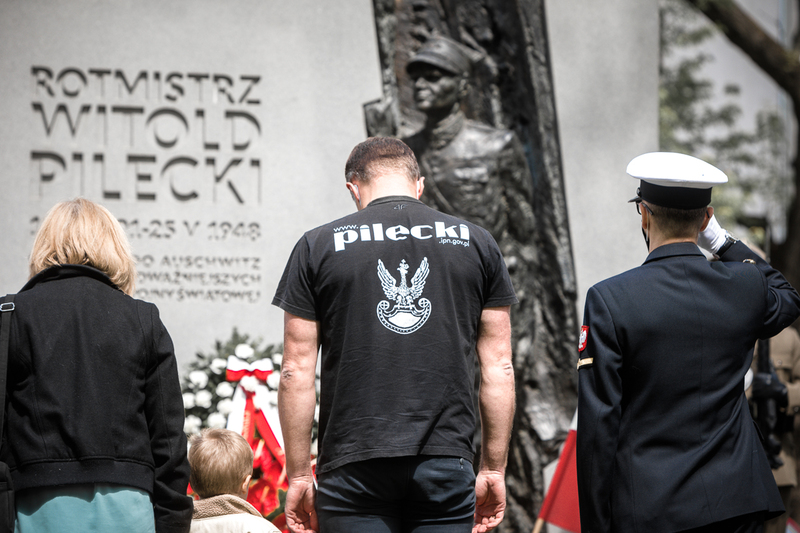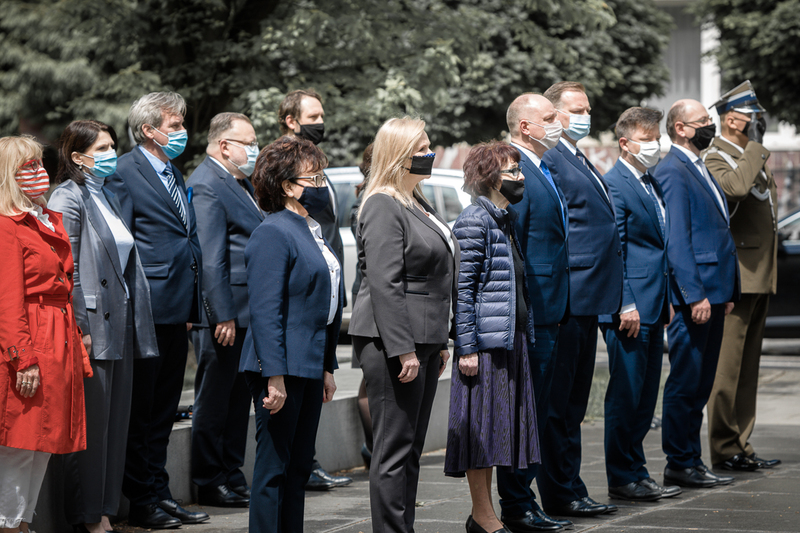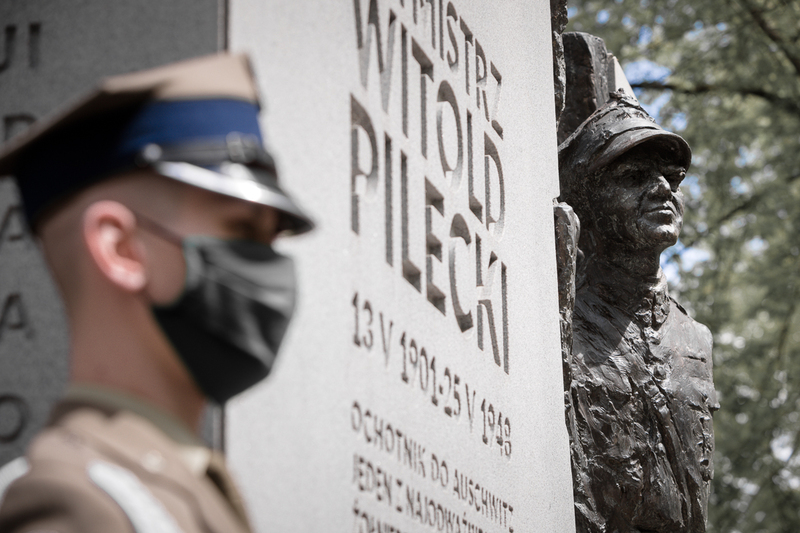On 25 May 1948, the communists killed one of the bravest defenders of Polish independence. The execution of Captain Witold Pilecki was carried out in a Warsaw prison in the Mokotów district. The direct executor of the sentence was Sgt. Piotr Śmietański, also known as "the executioner of Mokotów". Captain Pilecki was murdered by a shot in the back of the head. His body was buried in an unknown place, probably on the so-called “Łączka” next to the wall of the Military Cemetery in Powązki.
Candles of memory
In Warsaw, along the wall of the former Mokotów prison on Rakowiecka Street, the candles of memory were lit by the Captain’s daughter Zofia Pilecka-Optułowicz and Deputy President of the IPN Prof. Krzysztof Szwagrzyk, who manages the Institutes’s Office of Search and Identification. He also represented the IPN during a ceremony at the Museum of Cursed Soldiers and Political Prisoners, where a memorial plaque commemorating Captain Pilecki was unveiled.
Adam Siwek, Director of the IPN’s Office for Commemorating the Struggle and Martyrdom, lit a candle at the monument to Captain Pilecki on Wojska Polskiego Avenue in Warsaw, in the vicinity of the house in front of which Pilecki was arrested and then transferred to KL Auschwitz.
In Gdańsk, at the monument to Captain Pilecki next to the Museum of the Second World War, a candle was lit by the Director of the IPN, Gdansk Branch Prof. Mirosław Golon.
At the monument in Gorzów Wielkopolski a candle was lit by Director of the IPN, Szczecin Branch Paweł Skubisz, Ph.D.
In Cracow, at the bust of Captain Pilecki in the Gallery of Great Poles of the 20th Century in Jordan's park, the steadfast hero was commemorated by the Director of the IPN, Cracow Branch Filip Musiał, Ph.D. and representatives of the "Freedom and Independence" Association Southern Area.
In Lublin near the Castle a candle was lit by Director of the IPN, Lublin Branch Marcin Krzysztofik.
In Wrocław at the monument at the Old Town Promenade Memorial a candle was lit by Director of the IPN, Wrocław Branch Andrzej Drogoń, Ph.D.
In Poznań a candle was lit by Director of the IPN, Poznań Branch Rafał Reczek, Ph.D in the cloister of the Dominican monastery, where there is a plaque dedicated to Captain Witold Pilecki.
In Zabrze tribute was paid by Director of the IPN, Katowice Branch Andrzej Sznajder, Ph.D.
In Łambinowice tribute was paid by Head of the Opole Sub-Branch of the IPN Tomasz Greniuch, Ph.D.
Memorial candles were also lit in Wieluń ̶ at the heroe’s bust in the Captain Witold Pilecki park, where tribute to Captain was paid by Director of the Łódź branch of the IPN Dariusz Rogut, Ph. D.
In Bełchatów a candle was lit by Aleksandra Kotecka from the Office for Commemorating Struggle and Martyrdom, Łódź Branch.
Ceremony in honor of Captain Pilecki in Warsaw's Żoliborz
On 25 May official state delegations laid flowers at the hero's monument in the Żoliborz distrct, near the house in front of which he was arrested and then deported to Auschwitz in 1940. On behalf of the Institute of National Remembrance, Mateusz Szpytma, Deputy President of the Institute of National Remembrance, paid homage to the Captain.
Witold Pilecki
He began his service to Poland during the Bolshevik war of 1920. He fought during the September 1939 campaign, and then within the structures of the Polish Underground State. In 1940, entrusted with a mission by the Union of Armed Struggle command, he voluntarily let himself be arrested and deported to the KL Auschwitz German extermination camp in order to gather information and organize an underground conspiracy there. Threatened with the risk of exposure, he managed to escape from the hell of Auschwitz.
In 1944 he fought in the Warsaw Uprising. A year later he found himself in the 2nd Corps of the Polish Army in Italy, from where, by the decision of General Władysław Anders, he returned to Poland which was already under communist rule. His mission was to reestablish the intelligence structures of the Polish Government-in-Exile destroyed after the war. Arrested in May 1947, he was taken to the detention center on Rakowiecka Street in Warsaw, where communist torturers subjected him to a cruel investigation. Despite torture, he remained steadfast and faithful to the motto: God, Honor and Fatherland. Sentenced to death in a show trial, he was murdered on 25 May 1948, at 9.30 p.m.
Throughout the People’s Republic of Poland, all information about the achievements and fate of Captain Pilecki was subject to strict censorship. His burial place is still unknown. In 2006, Witold Pilecki was posthumously awarded the Order of the White Eagle, and in 2013, he was promoted to the rank of Colonel.
